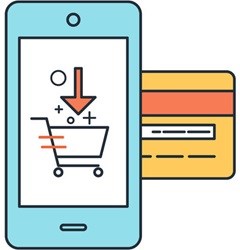
Top stories





Energy & MiningGlencore's Astron Energy gears up with new tanker amidst Sars dispute
Wendell Roelf 12 hours

More news

















Logistics & Transport
Uganda plans new rail link to Tanzania for mineral export boost











To be fair, advanced analytics is a complex tool involving difficult processes. It comprises gathering, analysing and re-purposing customer information. Retailers then use this information or data to target specific customers to encourage them to purchase more goods in their stores.
In the retail environment, the sources of this data - which are a form of big data - include how many units of each branded item were sold in the store; which items were bought together in the same customer basket; and even which customer bought what goods when and where, and when they next shopped, how did their baskets compare?
By mining this data and extracting relevant information, and using predictive analytics tools and skills, retailers can accurately predict what products individual consumers will most likely buy next and from which store. This allows marketers to customise their messages around this information and target, with unparalleled precision, specific customers with specific promotional or product information that matches their personal purchase profile. Predictive analytics makes true one-to-one marketing a reality.
Although new-generation online businesses have dipped their toes into the predictive analytics pond, by comparison brick-and-mortar retailers have lagged behind. The truth is, you need serious strategic intent combined with analytical skills, tools and budget to unleash the true capabilities of this research tool. These are currently the two biggest challenges hindering retailers' progress.
Analytics-based marketing strategies demand of their owners strategic intent to embrace this fresh approach. In this new age of personalised communications, there's no room for mass marketing. That means large legacy businesses have to leave their old-school marketing baggage at the door. But that requires a significant mindset shift, long-term vision and management buy-in, as this approach also dictates a brand new way of doing business internally.
Thousands of South Africans have retail loyalty cards, but do retailers target these consumers on a weekly or monthly basis with specific sales information based on their purchase profiles? It could be argued that some shoppers and consumers are seeking this additional value from the retailers they trade with. The future realisation of this opportunity could certainly provide a new level of competitive advantage for progressive retailers.
To use data for predictive analytics effectively, the data has to be cleaned. As much as 80% of the effort involved in working with big data is correctly preparing it for re-purposing. This emerging new skill is the domain of data scientists; however these skills are scarce, both globally and in South Africa, pointing to the second major stumbling block for retailers.
Data cleansing is a highly specialised skill that unlocks the value of the data, highlighting all the dots that need to be joined to create individual customer profiles. Only once this has been done can brand owners feed the information into their marketing and promotional strategies.
Although these strategies will have many elements - an essential component of which is social media - at their core are well-structured, value-driven loyalty programmes.
There is a huge amount of economic pressure on South African consumers right now: disposable income is at its worst, and the cost of living continues to rise while salaries don't. This is forcing consumers actively to seek out greater value - something we at BMi Research are seeing this across all LSMs.
Loyalty programmes have the potential to deliver that value. The only catch? These programmes must be combined with big data so as to provide customers with a non-genetic value proposition that resonates with them personally.
There are more than 100 loyalty programmes operational in South Africa right now, but these are weighted more towards what the consumer gains (points, discounts and rewards) than what the retailer gets out of it (customer-centric data). Retailers are yet to harvest their wealth of loyalty data as part of a big data set to inform one-to-one communications.
South African retailers sense there's an opportunity to use these new tools to gain market share and influence sales. While that is true, the devil is in the detail. If done properly, I believe advanced analytics heralds the most exciting opportunity for SA retailers in recent years.
